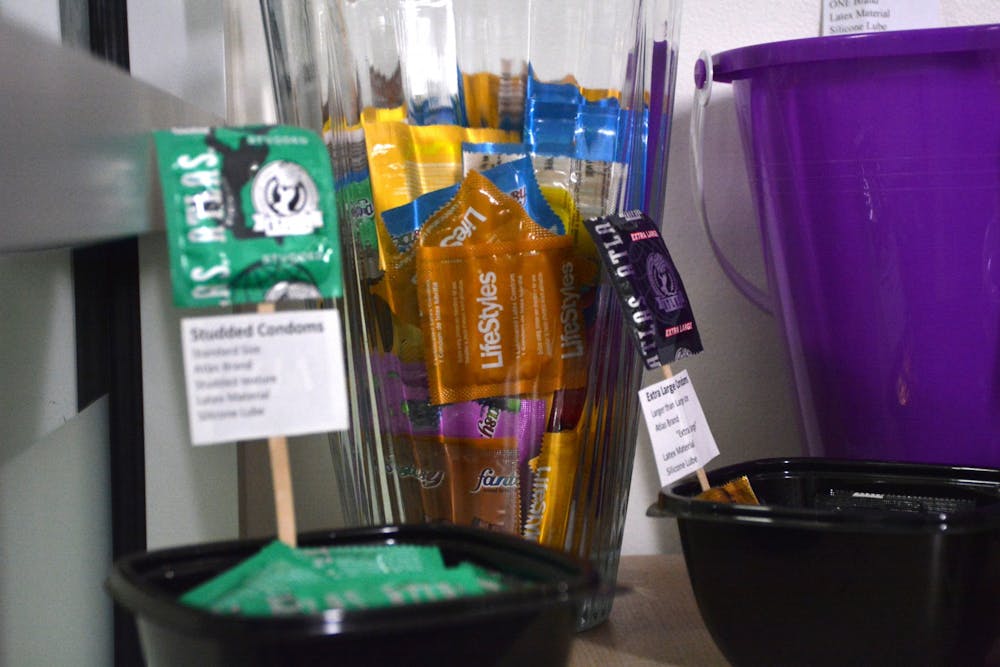Recently, despite the availability of antibiotics that effectively cure them, cases of STDs like chlamydia, gonorrhea and syphilis continue to rapidly spread across America. Virginia has not remained immune from this national trend, as the Thomas Jefferson Health District that encompasses Charlottesville witnessed a significant inflation of cases.
According to the Centers for Disease Control and Prevention, chlamydia, gonorrhea and syphilis infections rose in the United States by 19, 63 and 71 percent since 2014, respectively. Based on a report the CDC released in early October of 2019, gonorrhea grew by 5 percent and chlamydia by 3 percent from 2017 to 2018. Moreover, at least 2 million people suffered from one of the three illnesses, the most ever recorded by the CDC.
Relatively common STDs such as chlamydia, gonorrhea and syphilis wreak havoc on men and women’s reproductive symptoms, causing swelling, sores, rashes, internal damage and bleeding. Transmission occurs via sexual contact with an infected individual or from a pregnant woman to her unborn child.
Jamie Leonard, director of the office of health promotion in the Department of Student Health, listed several precautionary steps to prevent STDs, such as limiting the number of partners and using protection when engaging in sexual contact. When starting a relationship, Leonard recommended regular STD screenings and sharing one’s STD status with any significant others.
“Talking with a partner about expectations around condom usage, mutual monogamy and/or STI status ensures that everyone is on the same page, making informed decisions, and protecting themselves and their partner(s),” Leonard said.
Young adults and homosexual males traditionally represent the most at-risk populations, the CDC claimed. However, as Clare Ruday, MSN, senior public health nurse and PrEP program manager for the Thomas Jefferson Health District noted, STDs affect a wide range of people.
“Basically, anyone who has sex is at risk because you might be monogamous, but your partner isn’t,” Ruday said. “I think people forget about it or think STIs are just an issue for young people, but we want everybody to get tested.”
All three diseases are curable, but without treatment, serious complications can arise. Chlamydia can cause a fertilized egg to develop outside of the uterus, while severe syphilis can negatively impact the brain and heart. Infection also increases the probability of contracting HIV.
The Thomas Jefferson Health District, which spans Charlottesville and five counties in central Virginia, noticed local trends that mirrored those reported by the CDC. Ruday stated that over the past five years, syphilis cases surged by 77 percent, with gonorrhea following at 33 percent and chlamydia at 29 percent. Approximately 57,000 Virginia residents received STD diagnoses in 2018, whereas only 55,000 did the previous year.
“[The diseases are] happening here,” Ruday said. “People don’t think it’s here but it’s here … nobody really wants to talk about it or think about it. My job is to put it in front of people.”
The CDC attributed national patterns to factors that impede people’s ability to obtain effective STD care, prevention education and resources. Reasons include poverty, substance abuse and recent fund reductions for local and state programs that combat STDs. Furthermore, a general decrease in condom use has left individuals more vulnerable to STD transmission.
In fact, the Thomas Jefferson Health District offers free condoms to the Charlottesville community and students as one of the first lines of defense against STDs. The medical center also conducts free walk-in clinics on Tuesday mornings and Thursday afternoons that address sexual health, and on the first and third Wednesday evenings of each month, they host free “test and go” clinics. The event provides community members with the opportunity to quickly have blood and specimen collected and screened for chlamydia, gonorrhea, syphilis, HIV and Hepatitis B and C. Staff even attempt to make the experience enjoyable, showing a movie and supplying attendees with snacks as they wait.
The Elson Student Health Center engages in similar forms of intervention and aid focused specifically on students. Clinicians examine patients for indicators of STIs and advise them on steps moving forward, regardless of a person’s test results. Currently, it costs $30 to be tested for gonorrhea and chlamydia at the Elson Student Health Center, and Student Council is planning to offer 70 free STI tests in an event at the center towards the end of the fall semester. Dr. Meredith Hayden, associate executive director of the Department of Student Health, promoted these resources.
“Student Health is a great resource for students,” Hayden said. “Clinicians are skilled in screening, treating and preventing infections.”
In addition, the Department of Student Health places a particular emphasis on education via the healthy sexuality issue of The Stall Seat Journal, as well as Peer Health Educators. Both serve to inform and counsel the public about safe practices when choosing to be sexually active.
“PHEs provide one-on-one patient education to students about a variety of college health issues,” Leonard said. “They provide outreach education to groups, i.e. residence halls, fraternities/sororities and student groups, etc., on college health issues, including sexual health.”
Whether seeking advice and treatment from the Thomas Jefferson Health District or Student Health, students and community members can attend STD screenings, clinics and consultations with trained medical professionals and health advisors. However, as Ruday emphasized, along with routine screenings, one of the keys to remaining healthy is as simple as communicating with potential and current partners.
“[You can get yourself tested] regularly so at least you know your status and can share that with your partner, or you can at least know you are covered,” Ruday said. “It shows [your partners] that you value your health and expect them to respect it as well.”
For more information about resources for STD prevention and treatment:
Thomas Jefferson Health District clinic: http://www.vdh.virginia.gov/thomas-jefferson/sexual-health-services/
434-972-6269
Elson Student Health Center:







